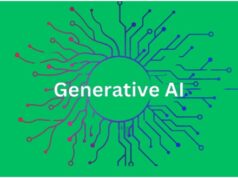Innovation is key in the dynamic realm of cryptocurrencies and blockchain technology. With an increasing number of platforms and initiatives vying for a piece of the cryptocurrency market, some stand out from the crowd by providing original answers to persistent issues. One of the main contributions of Solana, a high-performance blockchain platform, to the industry is Solang, a Solidity-to-Rust compiler. This compiler has the power to completely transform Web3 gaming by improving its scalability, efficiency, and developer friendliness. We’ll go into Solang and examine how it’s revolutionizing Web3 gaming in this blog post.


The Rise of Web3 Gaming
Before exploring the relevance of Solang, let us first examine the context in which it functions. Within the blockchain and cryptocurrency realm, web3 gaming is an interesting and quickly expanding industry. It creates a new paradigm of blockchain-based games where players truly own in-game assets, may trade them freely, and can influence the direction the game is developed. It does this by fusing the concepts of decentralized finance (DeFi) with gaming.
However, there have been difficulties for Web3 gaming as well; the biggest ones are scalability and developer acceptance. The gaming experience can be significantly hampered by traditional gaming platforms like Ethereum, which have battled with high gas prices and sluggish transaction processing. Conversely, because blockchain development is so sophisticated, developers have encountered challenges while creating and releasing games.
In this situation, Solang intervenes with a solution that might resolve these problems and advance Web3 gaming. This is where the need for a Solana Development Company arises.
Introducing Solang
The Solana team created the Solidity-to-Rust compiler known as Solang. On the Ethereum blockchain, Solidity is the primary programming language for creating smart contracts, although Rust is renowned for its efficiency and safety features. Solang intends to give developers a more effective and scalable toolkit for creating games and decentralized apps (dApps) by bridging the gap between these two languages. Unlock the future of decentralized innovation with the expert Solana blockchain development company.
Solang’s Impact on Scalability
Scalability is one of the main problems with Web3 gaming. Online game companies have huge transaction volumes and computing needs, which traditional blockchains like Ethereum have found difficult to manage. As a high-performance blockchain platform, Solana is already well-known for its scalability, offering minimal fees and quick transaction confirmation times. By using Solang as a tool, developers may use Solana’s built-in scalability.
Developers may make use of Solana’s high throughput and low latency while maintaining Rust’s speed advantages by utilizing Solang to compile Solidity smart contracts into the language. Because of this combination, Web3 games can handle more transactions per second, creating a more enjoyable and seamless gameplay experience.
Easier Development
Another important aspect that Solang takes into consideration is the development experience. The learning curve for Solidity, the native language of Ethereum smart contracts, is rather high. Concepts like gas costs, state variables, and the implementation of smart contracts are difficult for developers to understand, especially for those who are not experienced with them.
By enabling developers to create code in Solidity and subsequently transpile it to Rust, Solang streamlines the development process. This implies that developers accustomed to working with Solidity can keep using their favorite language while taking advantage of Rust’s performance benefits. It makes it easier for developers to break into the Web3 gaming market.
Use Cases in Web3 Gaming
After demonstrating Solang’s potential, let’s look at a few particular scenarios where Web3 gaming might benefit from its use:
● Non-fungible Tokens (NFTs)
A key component of Web3 gaming is NFTs. These distinctive digital assets, which can be purchased, sold, and exchanged on different markets, represent in-game goods, characters, or collectibles. Solang has greatly impacted the development of NFT. More security and performance may be added to NFTs by enabling developers to construct and administer them in a Rust-based environment.
Moreover, NFT trading is made possible at a far lower cost than Ethereum because of Solang’s integration with Solana’s ecosystem. This affordability is essential for drawing gamers and developers to the Web3 gaming environment.
● Delegated Proof of Stake (DPoS) for Consensus
The DPoS consensus method developed by Solana is renowned for its quickness and effectiveness. Game developers may create their DPoS-based games with Solang’s integration. This allows real-time interactions in online multiplayer games with quicker block confirmation times and lower latency. Envision a battle royale game in which decisions and actions are instantaneously verified on the blockchain.
● Gaming Asset Marketplaces
Players can purchase and sell in-game products directly on the blockchain using Web3 gaming asset marketplaces. Rust-based smart contracts from Solang can provide safe, trustless, and effective markets that guarantee fair transactions and lower the chance of fraud.
● Cross-Chain Compatibility
As a blockchain platform, Solana is naturally interoperable with other blockchains. In the future, Solang’s compiler could provide developers with the capability to connect assets from several blockchain networks. This implies that regardless of the blockchain that they were first developed on, gamers may utilize their in-game assets in other Web3 games.
Challenges and Considerations
Even though Solang has a lot of potential for Web3 gaming, there are a few issues and things to bear in mind:
● Curve of Adoption and Learning
When you Hire Solana Developers, you must consider that it will take time for developers used to Solidity to become proficient in Rust and the Solana ecosystem. The speed and scalability advantages, however, should more than offset the learning curve.
● Protection
Although Rust is a safe language, a smart contract’s security ultimately comes down to the expertise and techniques of the developer. Best procedures and security audits are crucial.
● Ecosystem Development
Solana and the tools that go with it are continually developing. When the ecosystem gets more developed, developers might need to adjust to upgrades and changes.
Conclusion
Within the dynamic realm of Web3 gaming, Solang is a noteworthy advancement. Scalability and developer adoption are only two issues it resolves by enabling developers to leverage the power of Rust while constructing on the Solana blockchain. Solang has the potential to be a game-changer as Web3 gaming picks up steam by making it possible to create creative, high-performing games that offer a smooth and safe gaming experience.
The advent of Solang and its integration with Solana bode well for the future of Web3 gaming despite the inevitable obstacles and considerations. We may anticipate a new era of Web3 gaming that pushes the limits of what’s possible in the realms of blockchain and gaming as the ecosystem develops and more developers use these technologies.









